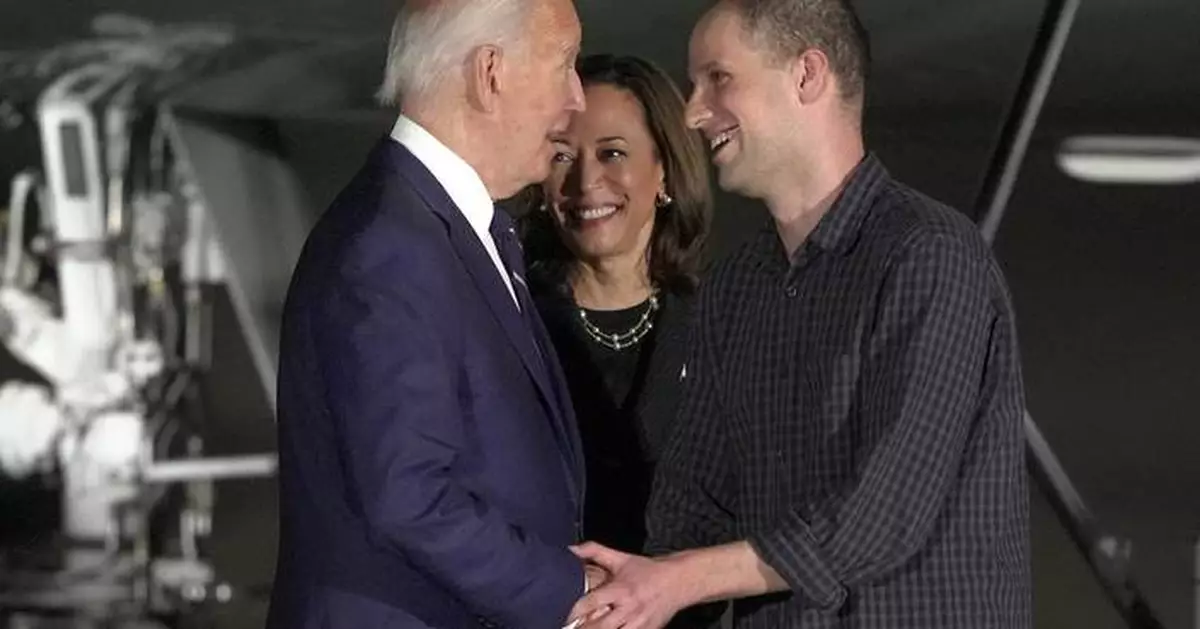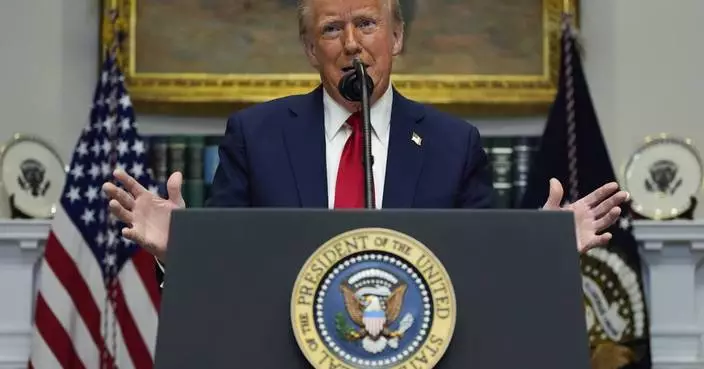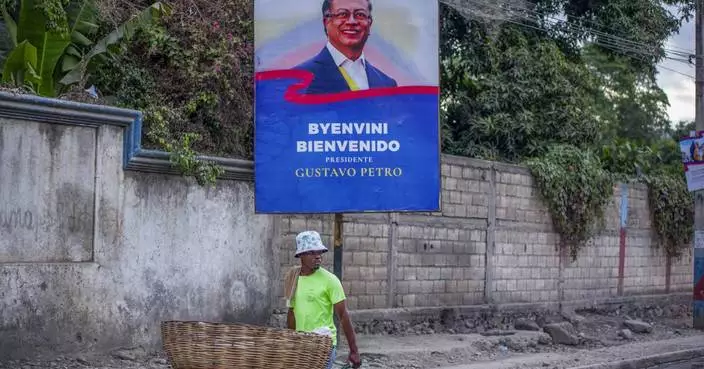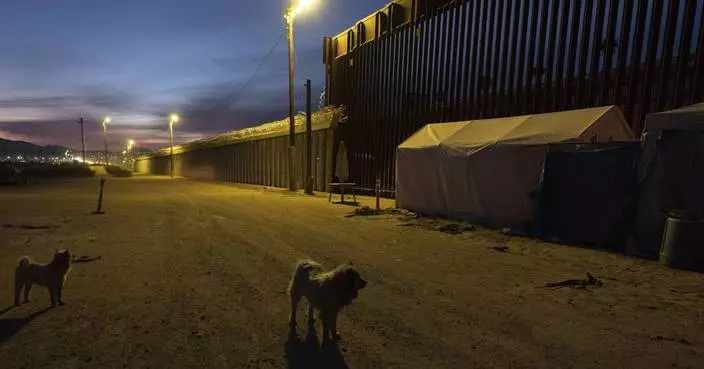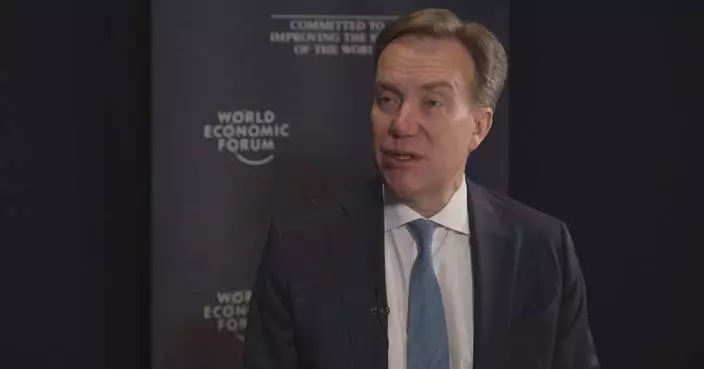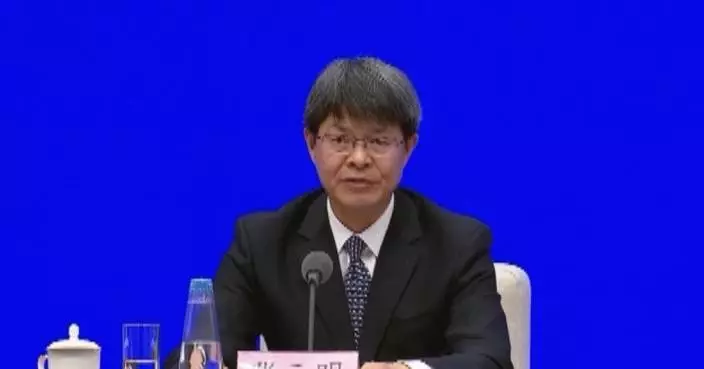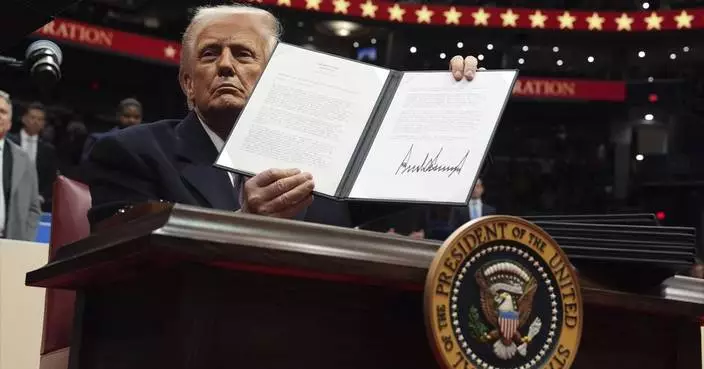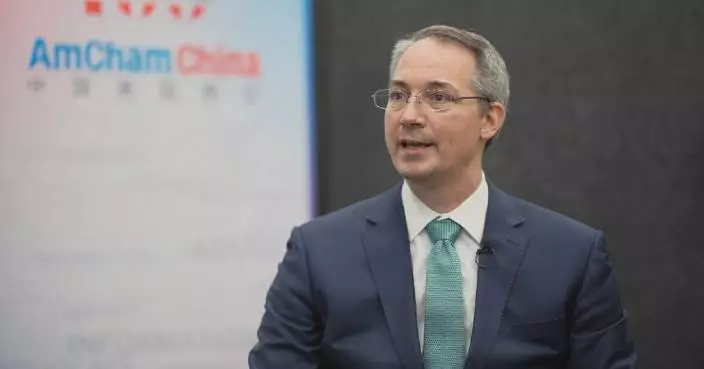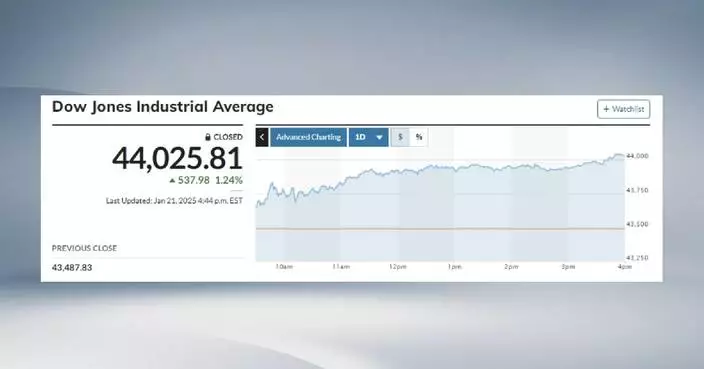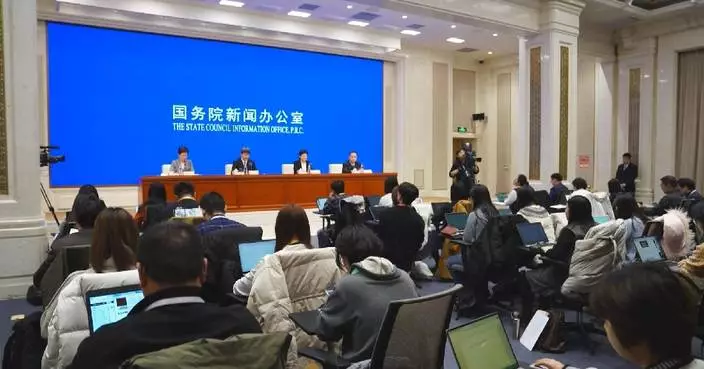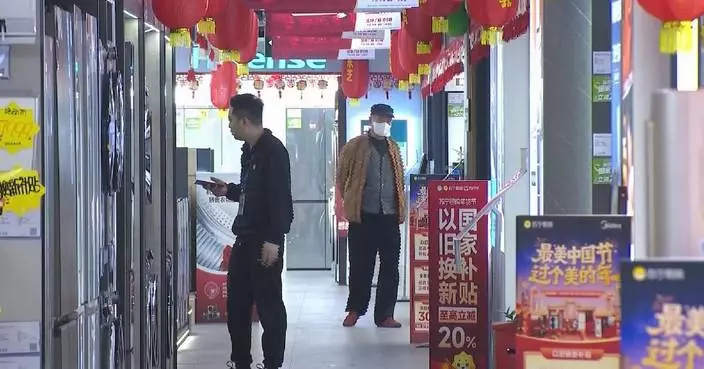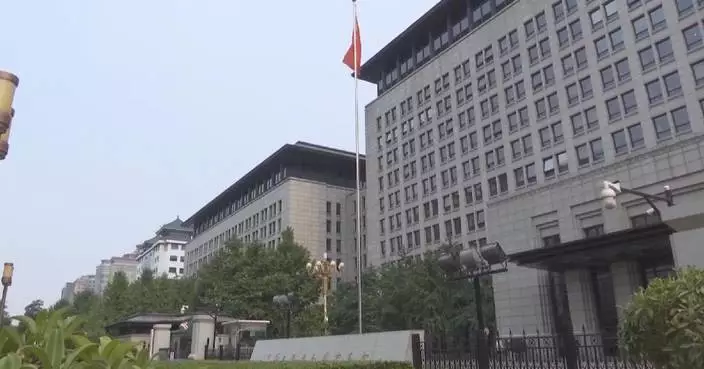Bloomberg News apologized and disciplined employees on Monday for prematurely publishing a story last week that revealed a prisoner exchange involving the United States and Russia that led to the release of detained American journalist Evan Gershkovich.
Bloomberg's story, released before the prisoners had actually been freed, violated the company's ethical standards, John Micklethwait, Bloomberg's editor-in-chief, said in a memo to his staff.
The company would not say how many employees were disciplined and would not identify them. The story carried the bylines of Jennifer Jacobs, senior White House reporter for Bloomberg News, and Cagan Koc, Amsterdam bureau chief.
“We take accuracy very seriously,” Micklethwait said in the memo. “But we also have a responsibility to do the right thing. In this case we didn't.”
Besides Wall Street Journal reporter Gershkovich, the exchange freed Paul Whelan, a Michigan corporate security executive jailed since 2018, and Alsu Kurmasheva, a journalist with dual U.S.-Russia citizenship. In return, the U.S. and other countries gave up Russians who had been charged or convicted of serious crimes.
Gershkovich's imprisonment on espionage charges that his family and newspaper denied attracted particular attention in the journalism community, and the Journal campaigned vigorously for his release. Word of the deal had begun to spread among people familiar with the cases and the White House briefed reporters about it on an embargo basis — meaning the journalists agreed not to release the information until given an official go-ahead.
Officials wanted to keep the news under wraps until the prisoners were safely released into U.S. custody for fear that public knowledge could scuttle the deal, and the Bloomberg story was published while a plane carrying them was flying to a drop-off point.
“This was not about a broken embargo,” the Wall Street Journal said in a statement Monday. “It was a report that Evan had been freed when in fact he had not yet been. We're happy that Bloomberg corrected it.”
The initial Bloomberg story, which moved at 7:41 a.m. on Thursday, said that Russia was releasing Gershkovich and Whelan as part of a major prison swap, “according to people familiar with the situation.” It was updated more than an hour later to say that the prisoners had not yet been released.
The White House officially lifted its embargo at 11:33 a.m.
Bloomberg's story put pressure on other news outlets to try to match it through other sources, without breaking the terms of the embargo agreements. The Associated Press, for example, sent an alert at 10:41 a.m. that Gershkovich and Whelan were being freed, quoting Turkish officials.
Shortly after the initial story moved, a Bloomberg editor wrote on X that “it is one of the greatest honors on my career to have helped break this news. I love my job and my colleagues," according to New York magazine. That post didn't sit well with other journalists who were aware of what was going on but were constrained from reporting it.
Micklethwait said he had apologized to Wall Street Journal editor Emma Tucker on Thursday, which the Journal confirmed. “Given the Wall Street Journal's tireless efforts on their reporter's behalf, this was clearly their story to lead the way on,” he said.
He said he was also writing personally to each of the freed prisoners to apologize.
Wall Street Journal reporter Dustin Volz, who covers the intelligence world, thanked Bloomberg for the apology in a post on X.
“Their premature story on Thursday caused a lot of people to panic and could have led to real harm,” Volz wrote. “It didn’t, thankfully, but it’s nice to see them own the mistake.”
David Bauder writes about media for the AP. Follow him at http://twitter.com/dbauder.
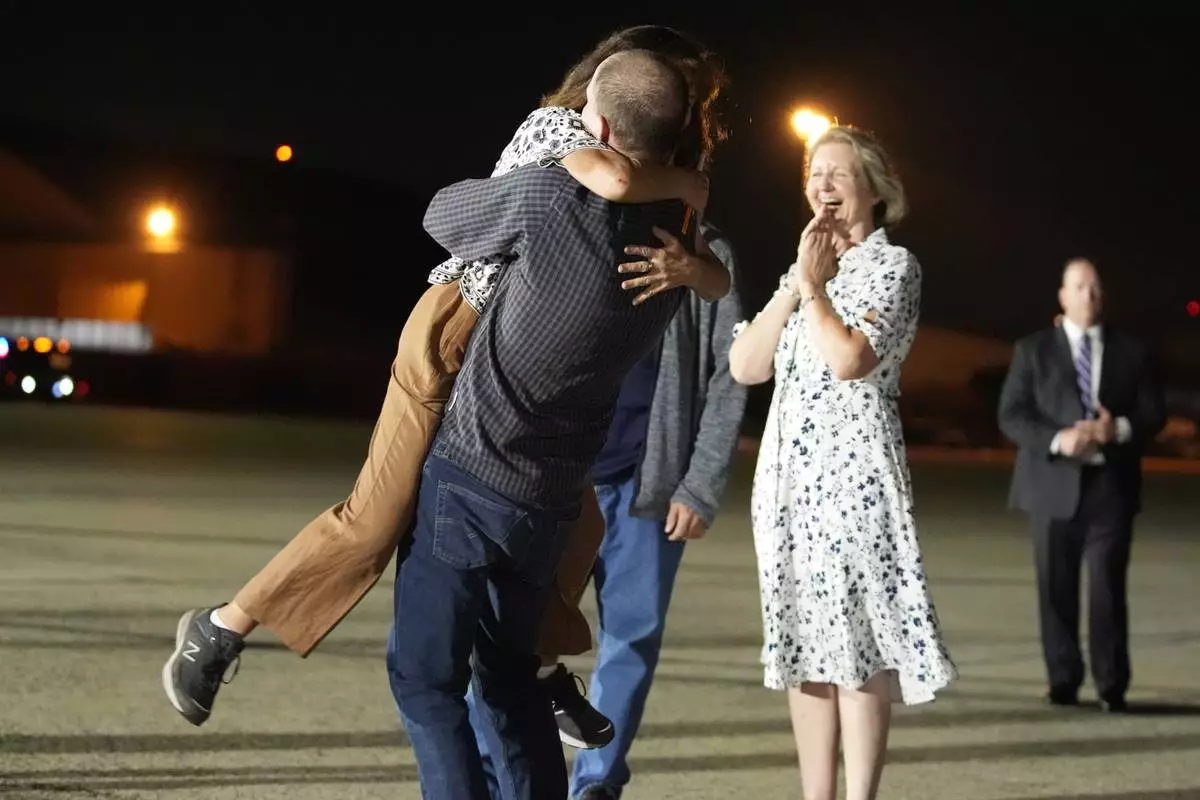
FILE - Reporter Evan Gershkovich hugs his mother Ella Milman, left, at Andrews Air Force Base, Md., following his release as part of a 24-person prisoner swap between Russia and the United States, Aug. 1, 2024. Looking on at right is Elizabeth Whelan, sister of released prisoner Paul Whelan. Bloomberg News is apologizing for a premature story written about the prisoner exchange and says it has disciplined the journalists involved. The story was put out by Bloomberg hours before an embargo was lifted by the White House. (AP Photo/Alex Brandon, File)
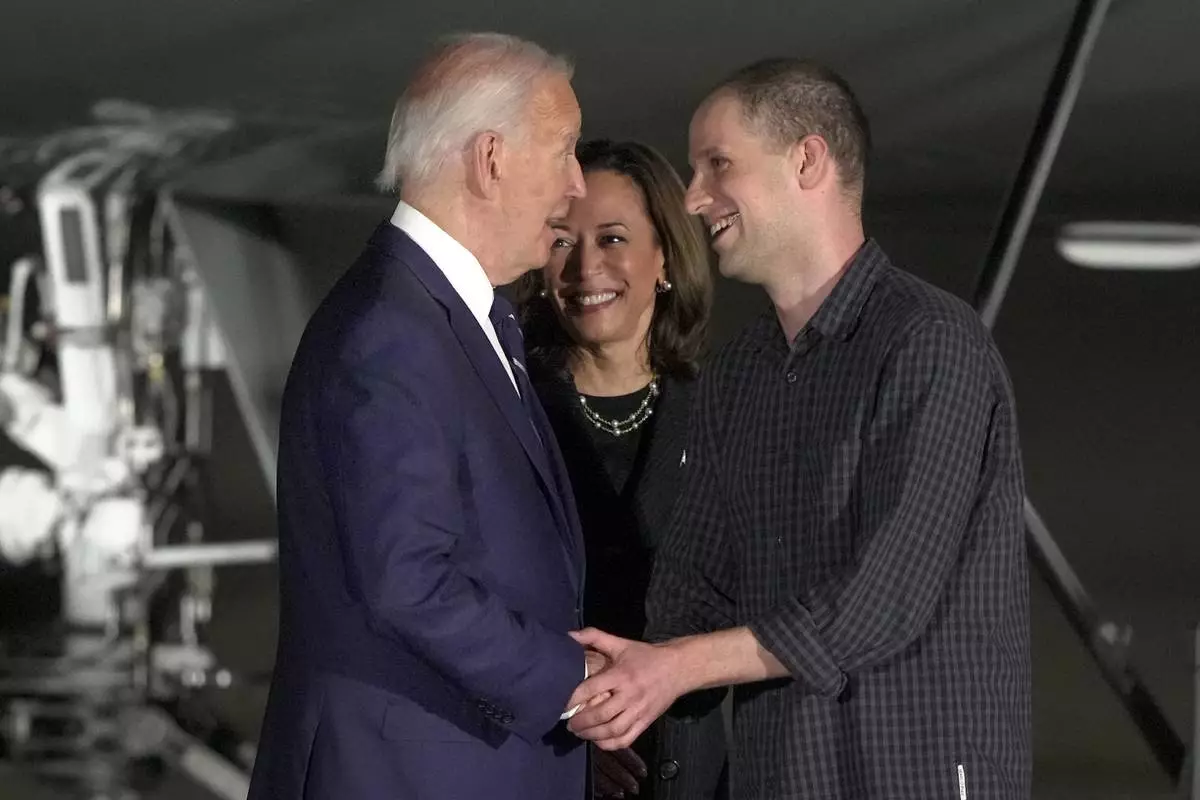
FILE - President Joe Biden, from left, and Vice President Kamala Harris greet reporter Evan Gershkovich at Andrews Air Force Base, Md., following his release as part of a 24-person prisoner swap between Russia and the United States, Aug. 1, 2024. Bloomberg News is apologizing for a premature story written about the prisoner exchange and says it has disciplined the journalists involved. The story was put out by Bloomberg hours before an embargo was lifted by the White House. (AP Photo/Manuel Balce Ceneta, File)
ROME (AP) — Human rights groups voiced outrage Wednesday after Italy released a Libyan warlord on a technicality, after he was arrested on a warrant from the International Criminal Court accusing him of war crimes and crimes against humanity.
The Hague-based court, for its part, issued a more diplomatic response but its anger appeared evident. In a stern statement late Wednesday, the ICC reminded Italy that it is obliged to “cooperate fully” with its prosecutions and said it was still awaiting information about what exactly Rome had done.
The reaction came after the Italian government on Tuesday released and sent back home Ossama Anjiem, also known as Ossama al-Masri, who heads the Tripoli branch of the Reform and Rehabilitation Institution, a notorious network of detention centers run by the government-backed Special Defense Force.
Al-Masri had been arrested Sunday in Turin, where he reportedly had attended the Juventus-Milan soccer match the night before. The ICC warrant, dated the day before, accused al-Masri of war crimes and crimes against humanity committed in the Mitiga prison in Libya starting in 2015 that are punishable with life in prison.
The ICC said he was accused of murder, torture, rape and sexual violence. It said the warrant was transmitted to member states on Saturday, including Italy, and that the court had also provided real-time information that he had entered Europe.
The court said it had reminded Italy at the time to contact it “without delay” if it ran into any problems cooperating with the warrant.
But Rome’s court of appeals ordered al-Masri freed Tuesday, and he was sent back to Libya aboard an aircraft of the Italian secret services, because of what the appeals court said was a procedural error in his arrest. The ruling said Justice Minister Carlo Nordio should have been informed ahead of time, since the justice ministry handles all relations with the ICC.
The ICC said it had not been given prior notice of the Rome court's decision, as required, and “is seeking, and is yet to obtain, verification from the authorities on the steps reportedly taken.”
Al-Masri returned to Tripoli late Tuesday, received at the Mitiga airport by supporters who celebrated his release, according to local media. Footage circulated online showed dozens of young men chanting and carrying what appeared to be al-Masri on their shoulders.
“This is a stunning blow to victims, survivors and international justice and a missed opportunity to break the cycle of impunity in Libya,” said Amnesty International’s Esther Major, deputy director of research for Europe.
Nordio appeared in the Senate on Wednesday for a previously-scheduled briefing, and was grilled by outraged opposition lawmakers who demanded clarity about what happened. Former Premier Matteo Renzi accused the right-wing government of hypocrisy given its stated crackdown on human traffickers.
“But when a trafficker whom the International Criminal Court tells us is a dangerous criminal lands on your table, it’s not like you chase him down, you brought him home to Libya with a plane of the Italian secret services,” said Renzi of the Italia Viva party. “Either you’ve gone crazy or this is the image of a hypocritical, indecent government.”
The Democratic Party demanded Premier Giorgia Meloni respond specifically to parliament about the case, saying it raised “grave questions” given the known abuses in Libyan prisons for which al-Masri is accused. Nordio didn't respond.
Italy has close ties to the internationally recognized government in Tripoli, on whom it relies to patrol its coasts and prevent waves of migrants from leaving. Any trial in The Hague of al-Masri could bring unwanted attention to Italy’s migration policies and its support of the Libyan coast guard, which it has financed to prevent migrants from leaving.
Human rights groups have documented gross abuses in the Libyan detention facilities where migrants are kept, and have accused Italy of being complicit in their mistreatment.
Two humanitarian groups, Mediterranea Saving Humans and Refugees in Libya, which have documented abuses committed against migrants in Libyan detention facilities, said they were incredulous that Italy let al-Masri go.
David Yambio, a 27-year-old from South Sudan who said he was abused by al-Masri while he was detained at the Mitiga prison in 2019-2020, said he felt betrayed by Italy. Yambio, who eventually escaped from the prison and arrived in Italy on a smuggler’s boat in 2022, said he had a “fleeting feeling of justice” when he heard that al-Masri had been arrested in Turin.
“Those who waited long before me, the Libyans who are victims of his criminal network, his war crimes, have been wanting for this day to come,” said Yambio, who received asylum and now lives in Modena and runs his Refugees in Libya advocacy group. “But when it came, it was immediately extinguished hours before it could even truly be felt in our hearts.”
But Tarik Lamloum, a Libyan activist working with the Belaady Organization for Human Rights which focuses on migrants in Libya, said Italy’s release of al-Masri was expected. He said his release shows the power of militias who control the flow of migrants to Europe through Libya’s shores.
“Tripoli militias are able to pressure (Italy) because they control the migrants file,” he told The Associated Press.
Militias in western Libya are part of the official state forces tasked with intercepting migrants at sea, including in the EU-trained coast guard. They also run state detention centers, where abuses of migrants are common.
As a result, militias — some of them led by warlords the U.N. has sanctioned for abuses — benefit from millions in funds the European Union gives to Libya to stop the migrant flow to Europe.
The European Commission spokesman reaffirmed all EU members had pledged to cooperate with the court.
“We respect the court’s impartiality and we are fully attached to international criminal justice to combat impunity," said EU commission spokesman Anouar El Anouni. In a 2023 summit, the EU leaders committed “to cooperate fully with the court, including rapid execution of any pending arrests,” he added.
Magdy reported from Cairo. Paolo Santalucia in Rome and Molly Quell in The Hague contributed.
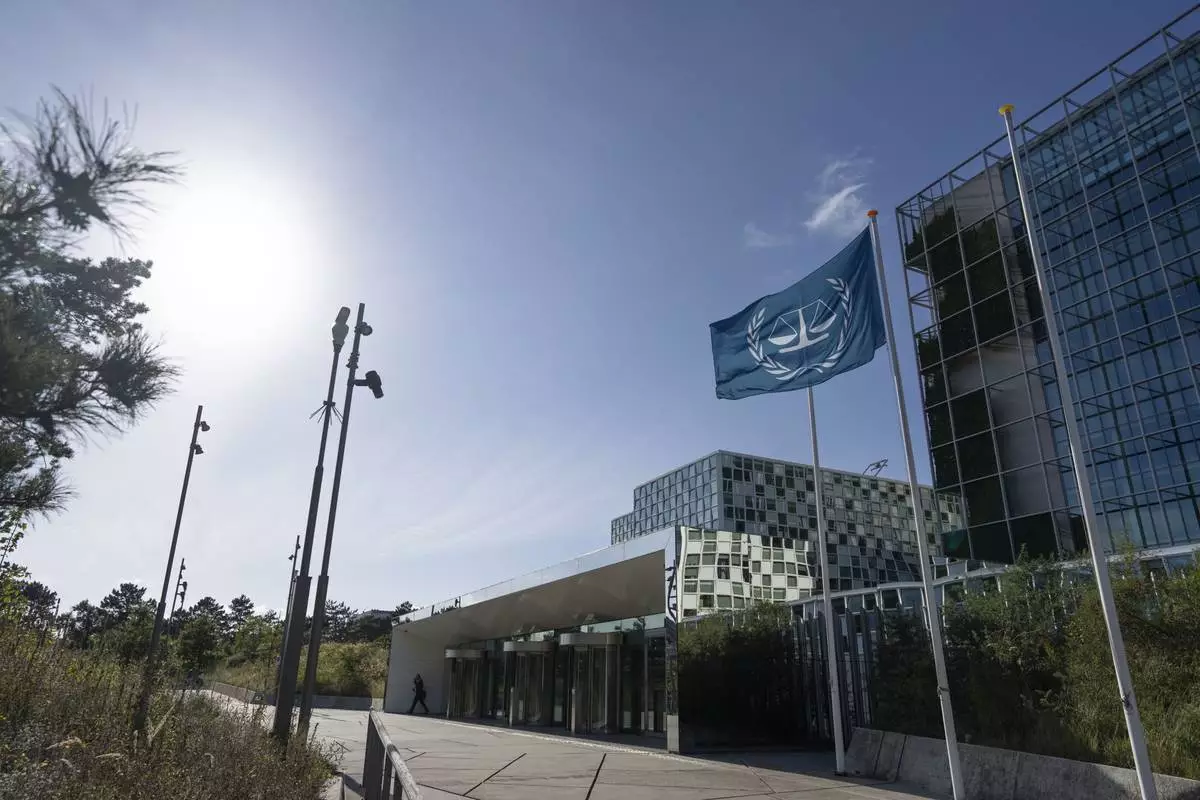
FILE - View of the ICC, the International Criminal Court, in The Hague, Netherlands, Monday, Sept. 16, 2024. (AP Photo/Peter Dejong, File)
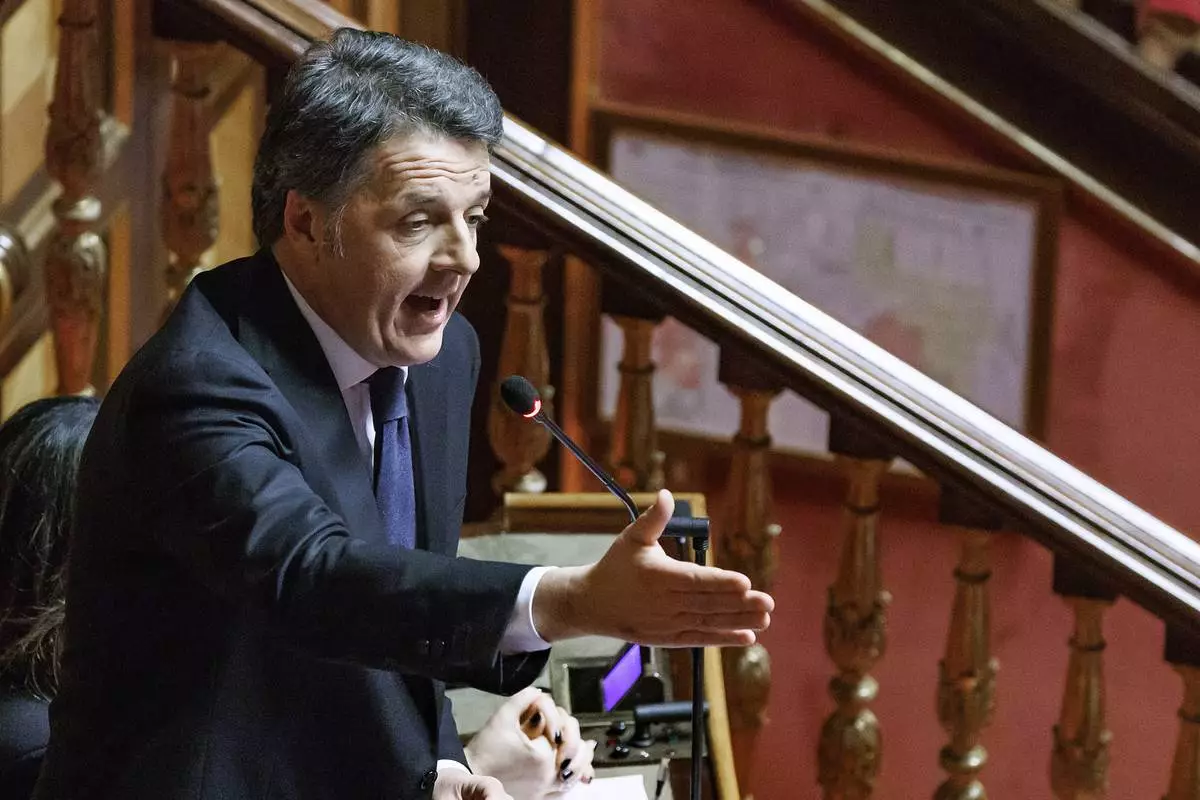
Former Prime Minister Matteo Renzi makes his remarks during Justice Minister Carlo Nordio's appearance at the Senate for the report on the justice administration, in Rome, Wednesday, Jan. 22, 2025. (Roberto Monaldo//LaPresse via AP)
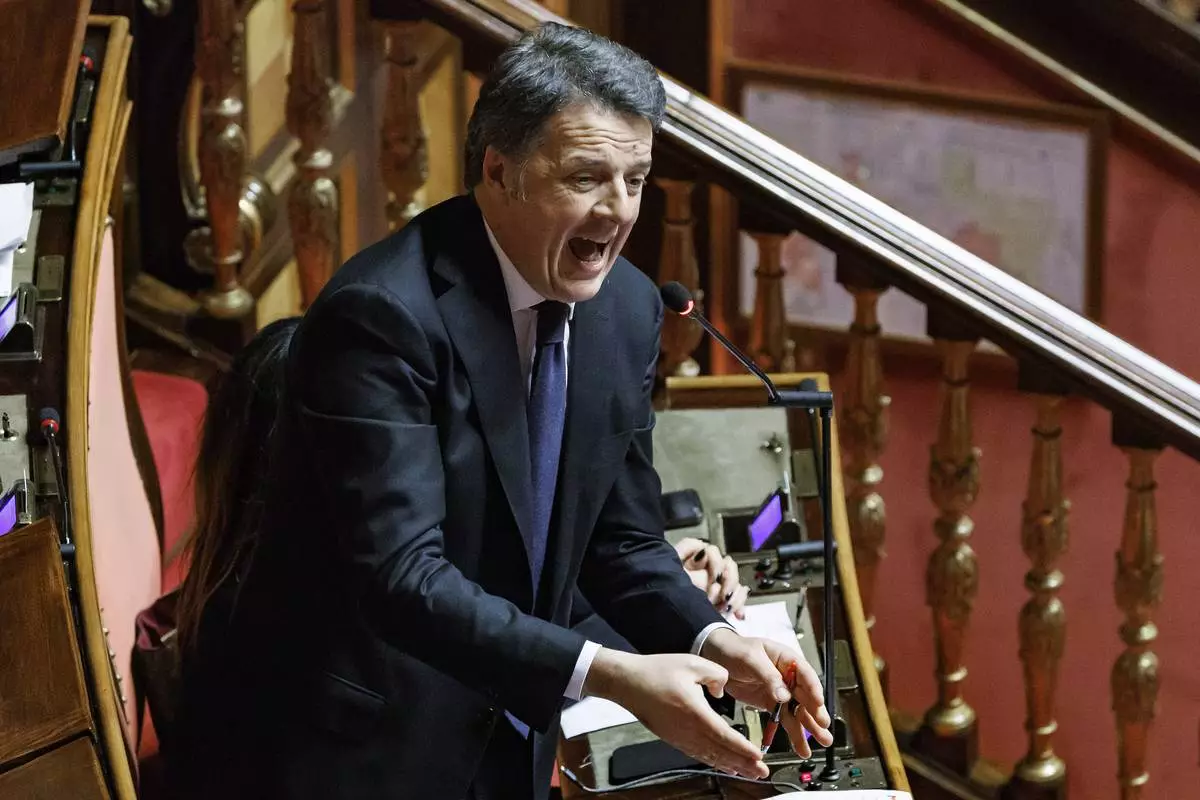
Former Prime Minister Matteo Renzi makes his remarks during Justice Minister Carlo Nordio's appearance at the Senate for the report on the justice administration, in Rome, Wednesday, Jan. 22, 2025. (Roberto Monaldo//LaPresse via AP)
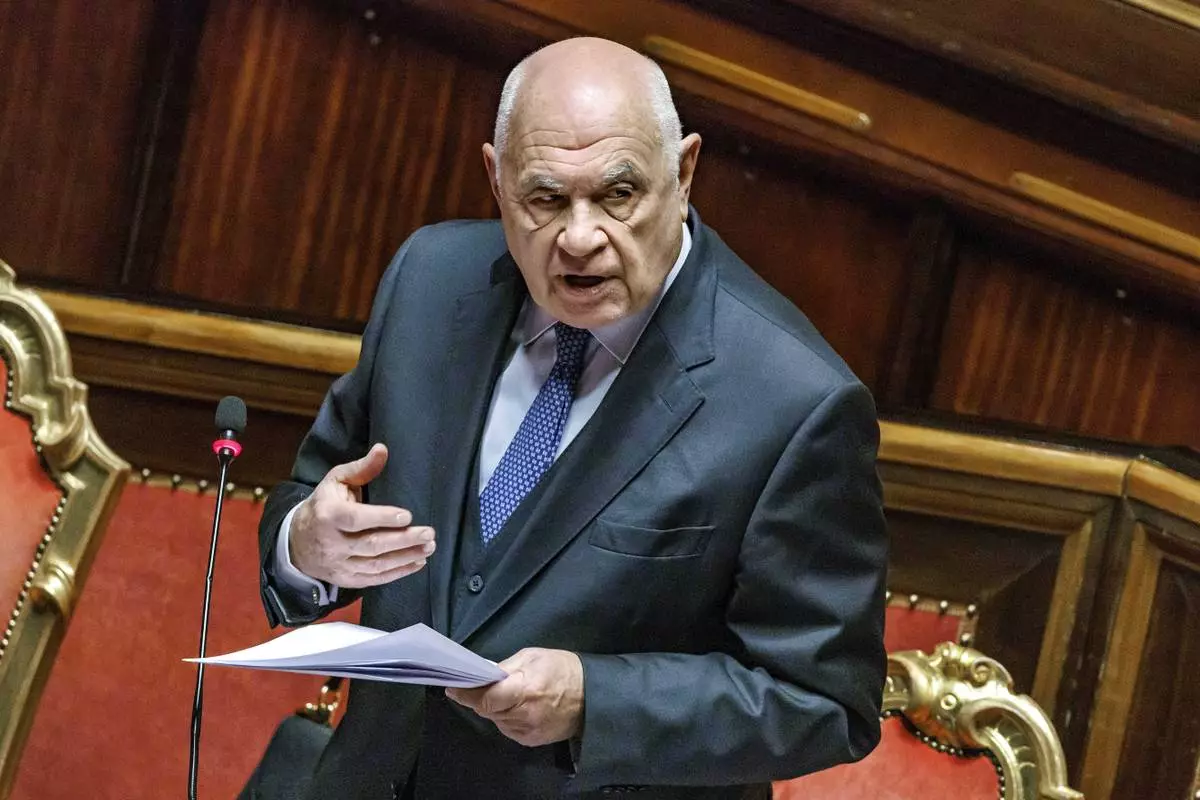
Justice Minister Carlo Nordio addresses the Senate during the report on the justice administration, in Rome, Wednesday, Jan. 22, 2025. (Roberto Monaldo//LaPresse via AP)
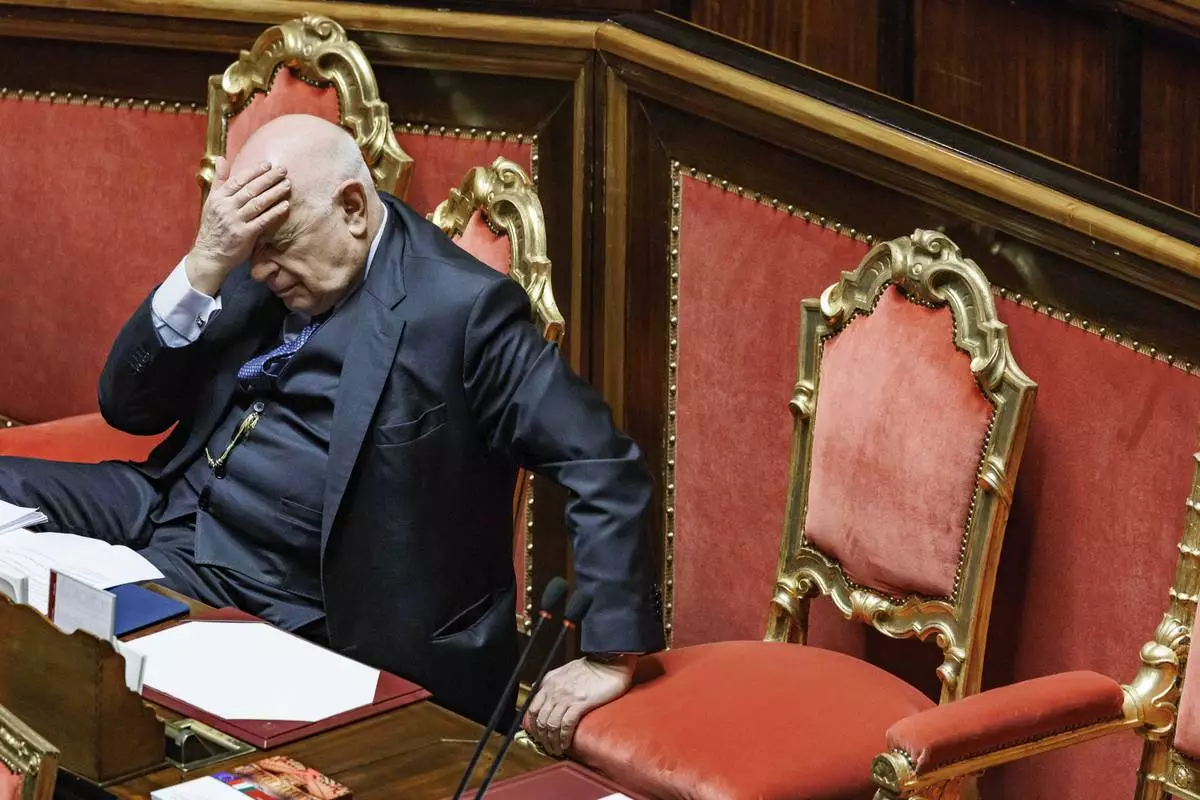
Justice Minister Carlo Nordio puts his hand to his head during the presentation of the report on the justice administration, at the Senate, in Rome, Wednesday, Jan. 22, 2025. (Roberto Monaldo//LaPresse via AP)
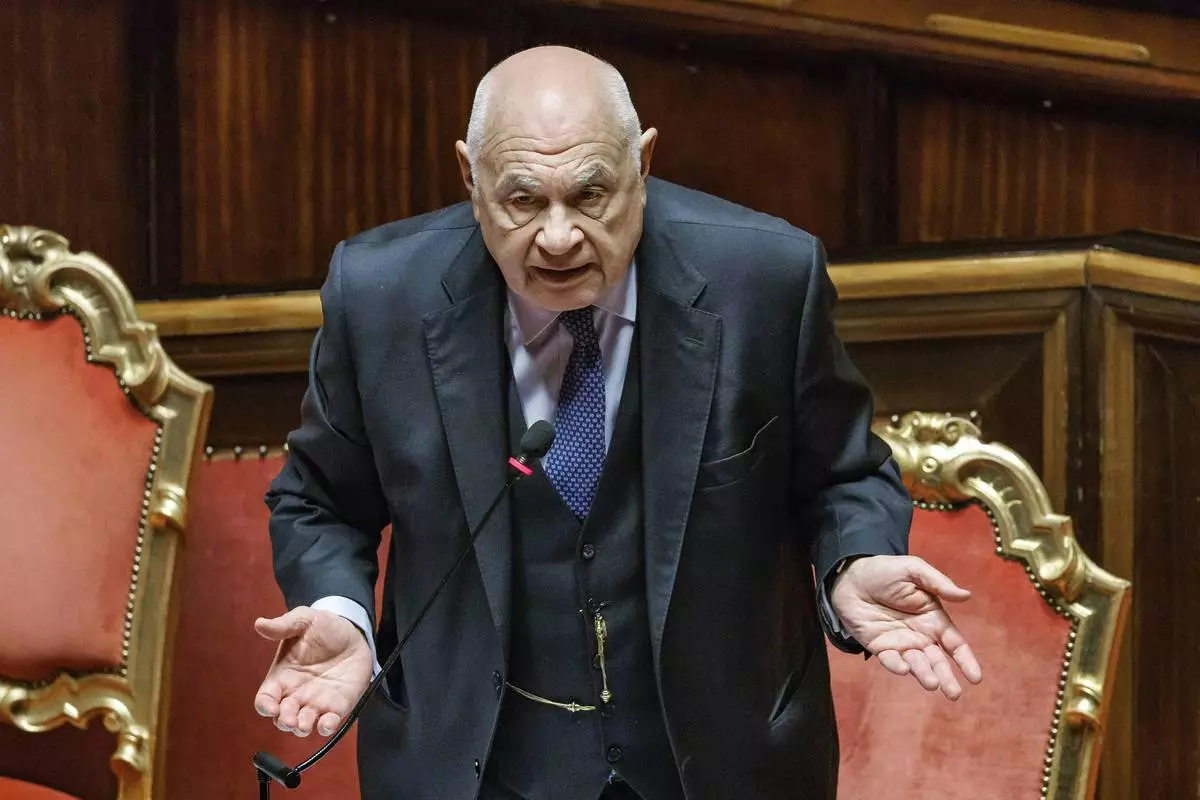
Justice Minister Carlo Nordio addresses the Senate during the report on the justice administration, in Rome, Wednesday, Jan. 22, 2025. (Roberto Monaldo//LaPresse via AP)




